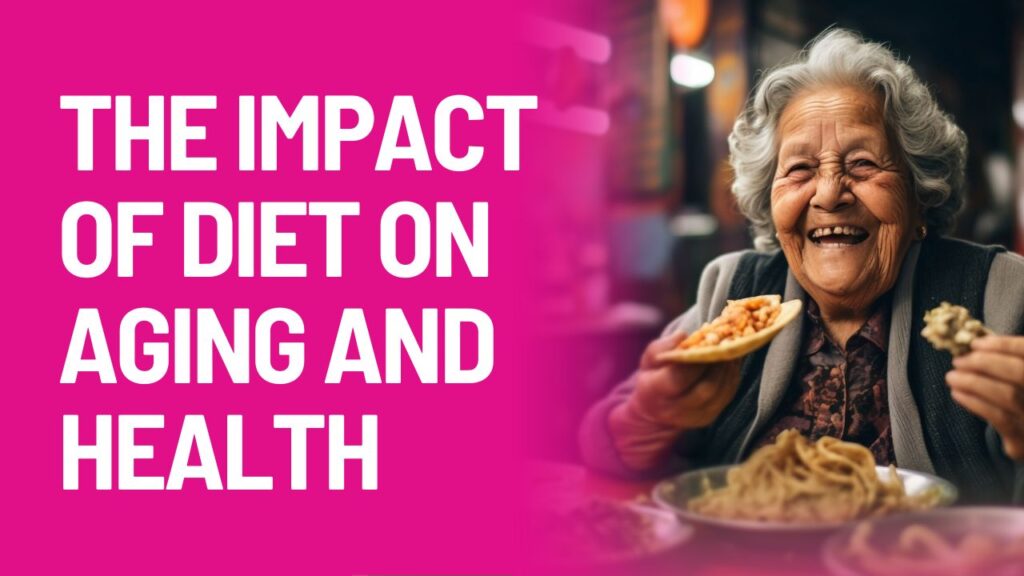As we grow older, the search for the elusive fountain of youth often leads us down various paths—some more fruitful than others. While there’s no magic potion to stop the clock, research has shown that what we put on our plates can significantly impact how we age. Specifically, studies are now pointing to the benefits of a calorie-restricted diet in slowing the aging process. But before you start imagining a life of endless salads and tiny portions, let’s dive into what this really means and how it can be a positive change in your life.
The Science Behind Calories and Aging
You’ve probably heard the saying, “You are what you eat.” But when it comes to aging, it turns out you might also be how much you eat. According to research conducted by Columbia University, Cleveland Clinic, and the National Institute on Aging (NIA), reducing calorie intake by a modest amount can have a profound effect on slowing down the aging process in healthy adults. The studies suggest that by consuming fewer calories, we can reduce the pace at which our bodies age, potentially increasing longevity and improving overall quality of life in elderly age .
This concept, known as calorie restriction, isn’t about drastic dieting or starvation. Instead, it’s about mindful eating—making sure you’re getting all the nutrients your body needs but without overindulging. The idea is to consume just enough to maintain a healthy weight and energy level while giving your body the best chance to stay youthful and vibrant.
Meet Margaret, the Mindful Eater
Let’s take a look at Margaret, a spry 68-year-old who decided to give calorie restriction a try after reading about its potential benefits. Margaret wasn’t looking to lose weight; she was interested in active aging and wanted to do everything she could to maintain her vitality as she entered her later years.
Margaret started by making small, manageable changes to her diet for old age. She didn’t cut out her favorite foods entirely but opted for smaller portions and healthier alternatives when possible. Instead of a big slice of cake, she’d have a few bites and savor them. She also added more fruits, vegetables, and lean proteins to her meals, focusing on foods that provided the most nutrition for the fewest calories.
The result? Margaret found herself feeling more energetic, less sluggish, and, interestingly, more satisfied with her meals. She didn’t miss the extra calories and felt good knowing she was taking steps to improve her ageing health. Over time, these small changes became second nature, and Margaret became an advocate for mindful eating among her friends, showing that it’s never too late to make positive changes to your diet and lifestyle.
The Benefits of Calorie Restriction: More Than Just a Number on the Scale
While many of us might associate calorie counting with weight loss, the benefits of a calorie-restricted diet go far beyond the scale. The studies referenced earlier indicate that by reducing calorie intake, you can actually slow down the biological processes that contribute to aging and health. This includes reducing oxidative stress, improving cardiovascular health, and even enhancing cognitive function.
For old age people, these benefits can be particularly significant. As we age, our bodies become less efficient at repairing the damage caused by free radicals—unstable molecules that can harm cells. A calorie-restricted diet can help mitigate this damage, potentially leading to a longer, healthier life.
Moreover, maintaining a healthy weight through mindful eating can help reduce the risk of age-related diseases such as diabetes, heart disease, and certain cancers. It’s not just about living longer; it’s about living better.
Overcoming the Challenges: You Don’t Have to Do It Alone
Of course, making changes to your diet can be challenging, especially if you’re used to a certain way of eating. But the good news is that you don’t have to do it alone. There are plenty of resources available to help guide you through the process of adopting a calorie-restricted diet in a way that feels sustainable and enjoyable.
Start by consulting with a healthcare professional or a dietitian who specializes in aging and health. They can help you create a plan that’s tailored to your specific needs and lifestyle. Remember, the goal isn’t to make drastic changes overnight but to gradually incorporate healthier habits into your daily routine.
Another tip is to involve your friends or family members. Margaret, for example, found that sharing her journey with friends not only made it more fun but also provided her with a support system to keep her motivated. You might even discover new recipes or cooking techniques together, making the experience a social and enjoyable one.
Humour in Healthy Eating
Now, you might be thinking, “Great, another thing to worry about as I age.” But before you get too concerned, remember that this isn’t about deprivation or making your life miserable. In fact, keeping a sense of humor about it can go a long way.
Imagine you’re about to indulge in a second helping of dessert, and you hear a little voice in your head—let’s call it “Calorie Carl”—reminding you of your goals. Instead of getting annoyed, why not have a laugh? Picture Calorie Carl with a chef’s hat, wagging his finger playfully. A light-hearted approach can make it easier to stick to your goals without feeling like you’re missing out.
Humor aside, the real takeaway is that by making small, mindful changes to your diet, you’re giving yourself the best chance at active aging. It’s not about being perfect; it’s about making choices that help you feel your best as you navigate the joys and challenges of elderly age.
So, what’s the next step?
If you’re curious about how a calorie-restricted diet might benefit you, why not give it a try? Start small—maybe by cutting back on portion sizes or swapping out a high-calorie snack for something more nutrient-dense. The key is to make changes that feel sustainable and enjoyable, not punishing.
Remember, aging is a journey, and how you fuel that journey can make a big difference. By embracing the concept of calories and aging, you’re taking control of your health and well-being, giving yourself the best chance to enjoy a long, vibrant life and by remembering that every age is a CanDoAge.
Take a page from Margaret’s book: Make your diet work for you, not against you. And most importantly, don’t forget to enjoy the process. After all, life’s too short not to savour every bite—just in moderation.
Your future self will thank you for it.
These sections provide a balanced mix of scientific insight, practical advice, and light-hearted humor to engage seniors while offering them valuable guidance on adopting a calorie-restricted diet for healthier aging.

